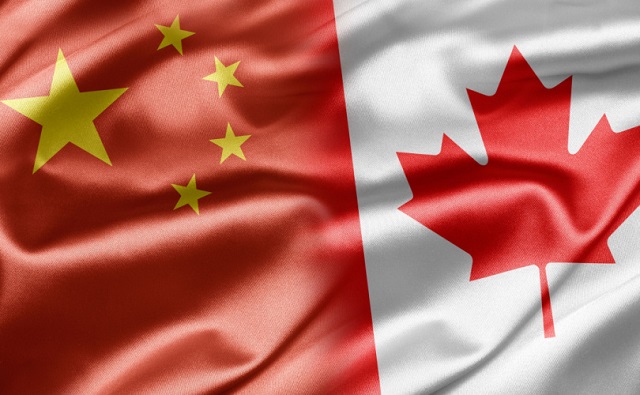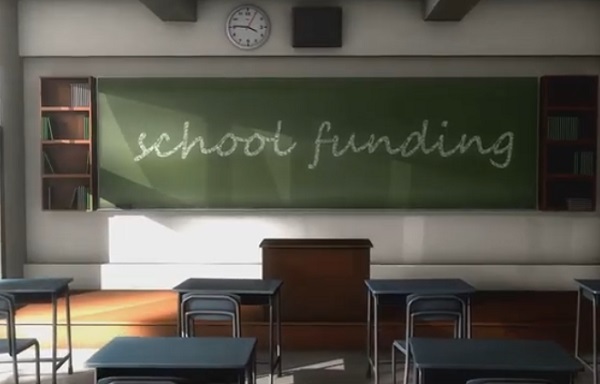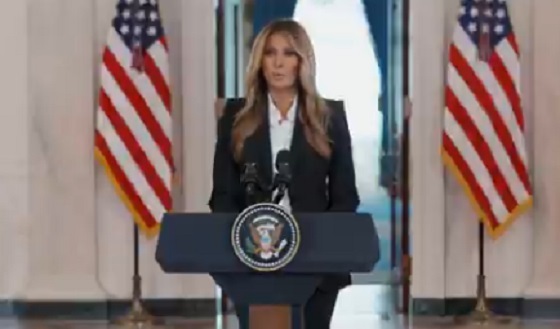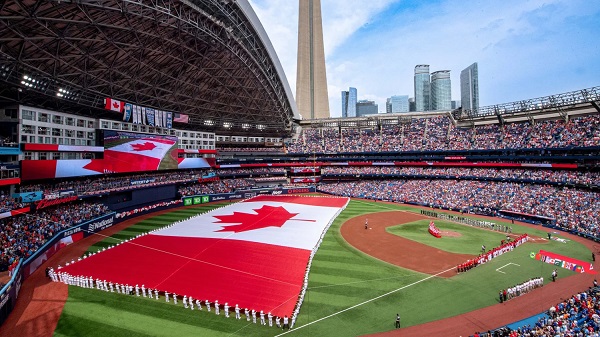espionage
Canada prepares to launch public inquiry into China’s alleged election meddling

From LifeSiteNews
“The great difficulty we have in Canada is the general public has trouble understanding that we’re threatened”
A public inquiry into alleged meddling in Canada’s two most recent federal elections by agents of the Chinese Communist Party (CCP) is set to start on January 29.
The investigation into allegations of CCP interference in the 2019 and 2021 federal elections will be led by Marie-Josée Hogue, a Conservative appointee to the Québec Court of Appeal.
The federal government under Prime Minister Justin Trudeau has been slow in responding to allegations of CCP election meddling after announcing on September 7, 2023, that it would be launching a public inquiry led by Hogue.
The public inquiry comes after Trudeau launched a failed investigation into CCP allegations last year after much delay headed by “family friend” and former Governor General David Johnston, whom Trudeau appointed as “independent special rapporteur.”
Johnston quit as “special rapporteur,” after a public outcry last year after he concluded that there should not be a public inquiry into the matter. Conservative MPs demanded Johnston be replaced over his ties to both China and the Trudeau family.
The public inquiry also comes after Trudeau for months was opposed to the idea of launching a full public inquiry into CCP election meddling despite calls from the opposition to do so – and after his failed “special rapporteur,” attempt to launch his own internal investigation.
The inquiry comes at the same time Trudeau’s own Privy Council office has been quietly polling Chinese Canadians in British Columbia on how relations between the two countries could be improved, as per documents dated June 14, 2023, which were obtained by Blacklock’s Reporter.
The polling was also done at a time when the Trudeau Liberal cabinet, instead of launching a public inquiry, had two reports commissioned by former CEO of the Trudeau Foundation, Morris Rosenberg, to investigate the matter.
To the surprise of no one, Rosenberg’s February 28 Report on the Assessment of the 2021 Critical Election Incident Public Protocol exonerated the Trudeau cabinet from any wrongdoing regarding potential election meddling.
Election meddling scandal implicates some of Trudeau’s top ministers
The potential meddling in Canada’s elections by agents of the CCP has many Canadians worried, especially considering Trudeau’s past praise for China’s “basic dictatorship” and his labeling of the authoritarian nation as his favorite country other than his own.
On Monday, LifeSiteNews reported that one of Trudeau’s top ministers, Mary Ng, was called out as having allegedly received support from the CCP in the 2019 Canadian federal election.
Reports from September 2023 have noted how despite a continuous stream of evidence suggesting that CCP agents have interfered in Canada’s last two federal elections, the nation’s elections commissioner omitted any mention of China from her annual foreign interference report to Parliament.
According to retired director of the Canadian Security Intelligence Service Richard Fadden, as per a 2021 testimony to the same committee, subterfuge by Chinese agents in Canada is a fact of life.
“The great difficulty we have in Canada is the general public has trouble understanding that we’re threatened,” he noted.
“They’re after us, if I can use the vernacular, from a whole variety of perspectives,” he noted, adding, “And they’re after us in a negative sort of way.”
Besides election meddling, China and by extension the CCP has been accused of operating clandestine “police stations” in Canada and other nations.
Last month, LifeSiteNews reported that Conservative MPs confirmed the Chinese CCP operated police “stations” in multiple locations in Canada, which allegedly serve to target its citizens abroad, but no one has been held accountable yet for allowing this to happen.
The police stations are currently being investigated by the Royal Canadian Mounted Police (RCMP), including “formal diplomatic protests to the Chinese Ambassador.”
In September 2022, LifeSiteNews reported that these stations have been linked to the CCP’s official law enforcement agency, the Fuzhou Public Security Bureau (PSB).
Crime
Canadian Sovereignty at Stake: Stunning Testimony at Security Hearing in Ottawa from Sam Cooper

Canada’s Border Vulnerabilities: Confronting Transnational Crime and Legal Failures
The Bureau has chosen to publish the full opening statement of founder Sam Cooper before the House of Commons Standing Committee on Public Safety and National Security, during the session titled “Canada–United States Border Management,” held on Tuesday, October 7, 2025, and webcast live at https://www.ourcommons.ca/
https://www.ourcommons.ca/Committees/en/SECU/Meetings?utm_source=substack&utm_medium=email
I offer these remarks and recommendations with humility. I’m still learning every day. I speak regularly with numerous law-enforcement and security professionals in both the United States and Canada. For over a decade, I’ve focused professionally on the threats that transnational crime poses to Canada’s borders, institutions, and people, alongside deep reporting on our financial and legal vulnerabilities to threat networks that often include ties to hostile state activity. Canada’s recent terror designation of the India-based Bishnoi gang is important. But that particular action recognizes only one facet of the many-sided transnational fentanyl, human-trafficking, Chinese-supplied chemical precursor, weapons-trafficking, terror and extremism threats that I will discuss today.
Across hundreds of interviews with Canadian and U.S. experts, I have come to a conclusion: many Canadians — including citizens, lawmakers, and judges — do not yet fully understand the scope and nature of the problem, and also seem defensive in engaging it. And if we don’t understand it, we cannot solve it.
In these politically divisive times, I hope I can add value by relaying, clearly and fairly, what professionals on both sides of the border are saying about the cultural, legal, and political differences that impede cooperation between the United States and Canada. My reporting has emphasized Canadian enforcement challenges — not to be unduly critical of my homeland, but because I think we should focus first on the levers we control, and reforms we should have already tackled decades ago.
This isn’t my opinion only. As you know, Canadian Association Police Chiefs president Thomas Carrique recently warned that police are being asked to confront a new wave of transnational threats with “outdated and inadequate” laws “never designed to address today’s criminal landscape.” He added that Canada would have been far better positioned to “disrupt” organized crime had Ottawa acted on reforms first recommended in the early 2000s.
As RCMP Assistant Commissioner David Teboul said this year after the discovery of major fentanyl labs in British Columbia — notable for their commercial-grade chemistry equipment and scientific expertise — “There’s a need for legislative reform around how such equipment and precursor chemicals can be obtained.” More border regulations could help, but will not be sufficient absent foundational legal change.
It has long been my experience in discussions with senior U.S. enforcement experts that American and Australian police can collaborate effectively because the two nations are able to authorize wiretaps on dangerous transnational suspects within days. In Canada, that speed is impossible, and it has become a major obstacle.
As former RCMP investigator Calvin Chrustie testified before British Columbia’s Cullen Commission several years ago, due to judicial blockages arising from Charter of Rights rulings, it had become practically impossible to obtain timely wiretaps on Sinaloa Cartel targets in Vancouver. In recent years, such delays in sensitive investigations have undermined cooperation between the RCMP and the U.S. Drug Enforcement Administration in major cases of fentanyl trafficking and drug money laundering. In 2017, I was personally alerted to these longstanding concerns about the breakdown in RCMP–DEA cooperation by a U.S. State Department official.
These impeded investigations have involved the upper echelons of Chinese Triads, which maintain deep global leadership in Canada and align with Chinese state-interference networks, as well as senior Iranian and Hezbollah-linked networks operating here. Both networks are engaged in fentanyl trafficking and money laundering in collaboration with Mexican cartels active in Canada.
Canada must urgently reform what it can fix on our side.
My first recommendation is this — there is no “low-hanging fruit.” I have not spoken to a single knowledgeable Canadian officer — current or former — who believes that simply spending more on personnel, equipment, training, or border staffing will solve this. What I hear is that, from ten to twenty years ago, before the evolution of Charter-driven disclosure and delay jurisprudence in Canada, our nations enjoyed a much closer enforcement relationship. Experts point above all to two Supreme Court rulings — Stinchcombe and Jordan — as the core legal obstacles. Our Stinchcombe disclosure standards and Jordan time restrictions, as applied, disincentivize complex, multi-jurisdictional cases and deter U.S. partners from sharing sensitive intelligence that could be exposed in open court. Veterans describe enterprise files stalling for lack of approvals or because specialized techniques are denied. When police and prosecutors anticipate disclosure fights they cannot resource — and trial deadlines they cannot meet — the rational choice is to avoid the fight altogether.
I can explain in greater detail, but without question these rulings have devastated Canada’s ability to prosecute sophisticated organized crime. The result is a vicious circle of non-prosecution and impunity. To deny the need for deep legal reform is to deny the depth of the problem.
To sum up, my reporting at The Bureau has highlighted interlocking failures — legal, political, and bureaucratic — that have turned Canada into a permissive platform for synthetic narcotics and criminal finance, badly misaligning us with our Five Eyes law-enforcement and intelligence partners, and bringing us to the brink of a rupture with the United States.
Thanks for your attention, Chairman and Members.
The Bureau is a reader-supported publication.
To receive new posts and support my work, consider becoming a free or paid subscriber.
espionage
Canada’s federal election in April saw ‘small scale’ foreign meddling: gov’t watchdog

From LifeSiteNews
A new exposé by investigative journalist Sam Cooper claims there is compelling evidence that Prime Minister Mark Carney and former Prime Minister Justin Trudeau are strongly influenced by an “elite network” of foreign actors, including those with ties to communist China and the World Economic Forum.
A report from a federal watchdog confirmed that foreign meddling did occur in Canada’s April 2025 federal election on a “small scale.”
Canada’s Security and Intelligence Threats to Elections Task Force (SITE TF) said in a recent note that the “small-scale” interference that happened was hard to attribute to one particular state actor.
The task force does have the power to warn of any threats during an election. It did not do so this year despite warnings from opposition Conservatives that meddling at the hands of Communist China is a reality.
“Over the course of the election period, the SITE TF observed instances of foreign interference such as transnational repression, inauthentic and coordinated amplification of online content, and online threats such as scams and disinformation,” the report’s conclusion reads.
“These activities were observed at a small scale and often remain difficult to attribute to a foreign actor.
As reported by LifeSiteNews, election interference from China’s Communist Chinese Party (CCP) government has been a real issue in Canada in recent years.
In March, the SITE TF warned that the CCP government would most likely try to interfere in Canada’s federal election.
When it comes to the integrity of elections in Canada, there have been reported issues of meddling at the hands of foreign powers.
As reported by LifeSiteNews, a new exposé by investigative journalist Sam Cooper claims there is compelling evidence that Prime Minister Mark Carney and former Prime Minister Justin Trudeau are strongly influenced by an “elite network” of foreign actors, including those with ties to communist China and the World Economic Forum.
In light of multiple accusations of foreign meddling in Canadian elections, the federal Foreign Interference Commission was convened last year to “examine and assess the interference by China, Russia, and other foreign states or non-state actors, including any potential impacts, to confirm the integrity of, and any impacts on, the 43rd and 44th general elections (2019 and 2021 elections) at the national and electoral district levels.”
The commission was formed after Trudeau’s special rapporteur, former Governor General David Johnston, failed in an investigation into CCP allegations after much delay. That inquiry was not done in public and was headed by Johnston, who is a “family friend” of Trudeau.
Johnston quit as “special rapporteur” after a public outcry following his conclusion that there should not be a public inquiry into the matter. Conservative MPs demanded Johnston be replaced over his ties to China and the Trudeau family.
-

 Business2 days ago
Business2 days agoThe Grocery Greed Myth
-

 Business2 days ago
Business2 days agoCarney government plans to muddy the fiscal waters in upcoming budget
-

 Business2 days ago
Business2 days agoTax filing announcement shows consultation was a sham
-

 Frontier Centre for Public Policy15 hours ago
Frontier Centre for Public Policy15 hours agoCanada’s Democracy Is Running On Fumes
-

 Business16 hours ago
Business16 hours agoYour $350 Grocery Question: Gouging or Economics?
-

 Education15 hours ago
Education15 hours agoClassroom Size Isn’t The Real Issue
-

 Media16 hours ago
Media16 hours agoResponse to any budget sleight of hand will determine which audience media have decided to serve
-

 International9 hours ago
International9 hours agoMelania Trump quietly reunites children divided by Ukraine war





